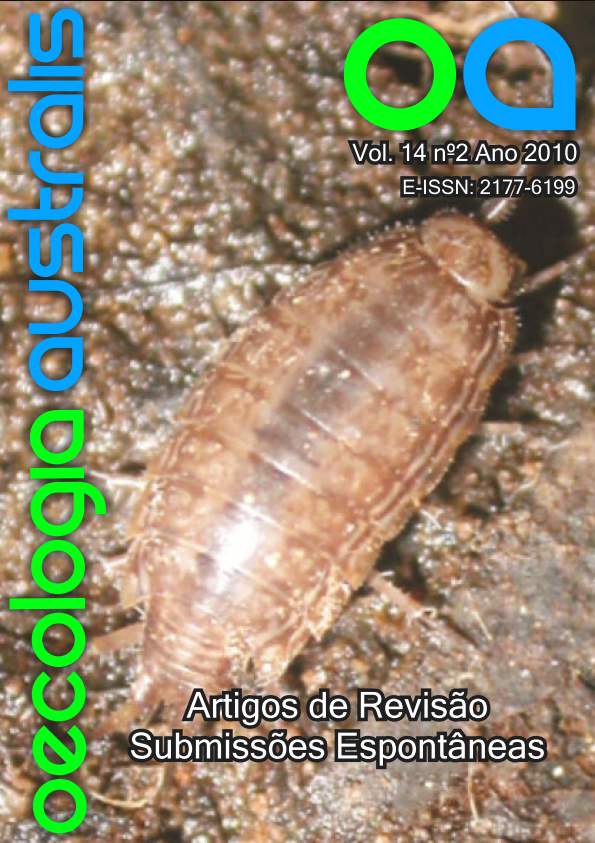DIVERSITY GRADIENTS AND THE METABOLIC THEORY OF ECOLOGY.
Keywords:
Species richness, scientometry, temperature gradients, metabolic rate, macroecology.Abstract
There is an ongoing debate about the mechanisms involved in the origin and maintenance of geographical patterns in species richness. An attempt to explain these patterns is the Metabolic Theory of Ecology (MTE) was proposed. The MTE assumes that species richness patterns are related to environmental temperature, which influences on individual metabolism. In this paper, we show that although controversial in some aspects, the MTE differs from other theories by making precise predictions about species richness patterns in large spatial scale and proposing that an environmental variable (temperature) influences these patterns. These predictions make the theory testable and falsifiable, which has caused a considerable debate in Ecology in the last years. Thus, here we analyze the MTE impact on the scientific literature, via a scientometric analyses, as well as describing the basic principles of this theory and point out their main advantages and disadvantages. Although MTE has being highly cited by main ecology journals, it does not apply to most of ecological processes, because it does not consider fundamental features that, in general, drive the diversity patterns.


